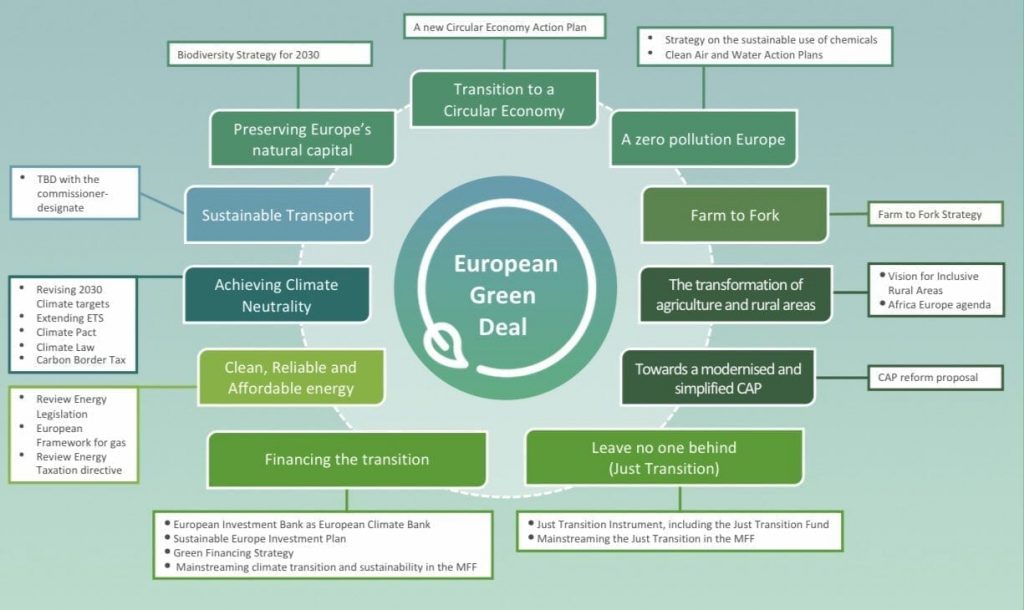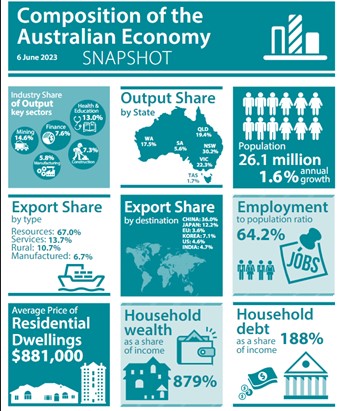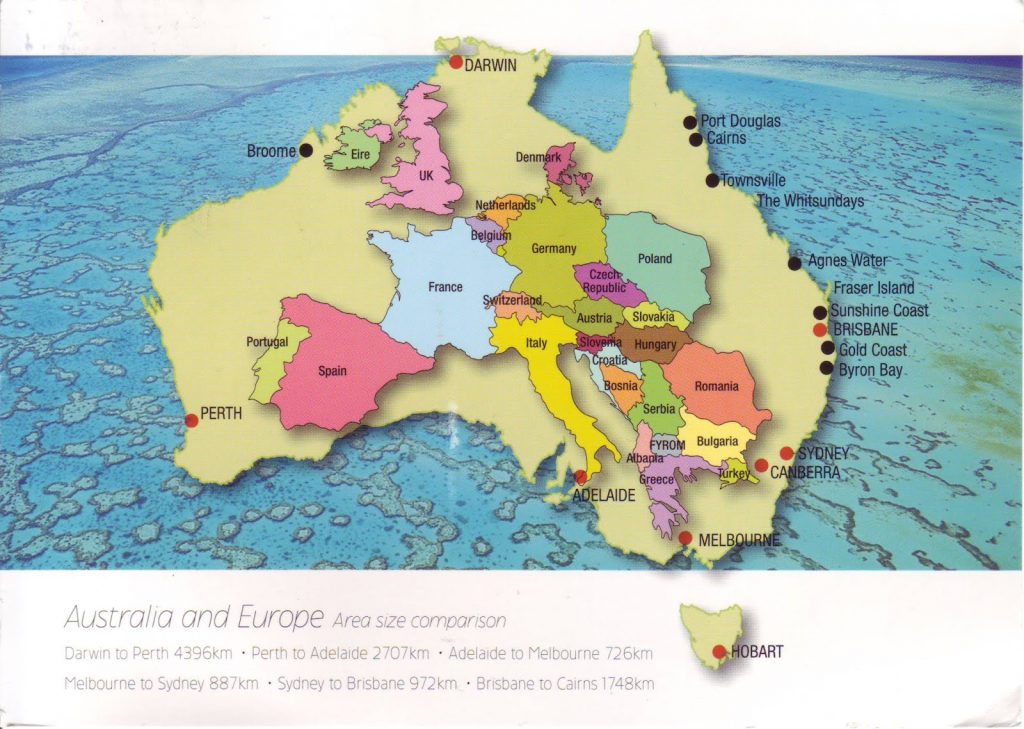Backgrounds, effects and examples from practice
Summary and supplement of the presentation “Thinking globally – The LkSG and the impact on international trade” by Bernd Hermann, Senior Consultant Analytics, its-people GmbH, held on May 10, 2023, at the its-people information event „Sustainability in Businesses” ![]()
The German Supply Chain Due Diligence Act is just one building block in the larger context of the European Green Deal. It has caused a stir internationally and raised many questions. How is it perceived by companies and governments around the world?
In this blog post, we take a look at concrete examples from the field and highlight the reactions of various stakeholders to the law. Whether approval or criticism – one thing is certain: the topic of supply chain responsibility is more topical than ever and affects us all.
The Supply Chain Due Diligence Act, or Supply Chain Act for short, which came into force on January 1, 2023, initially applies to companies based in Germany with more than 3,000 employees. From 2024, the law will then also apply to companies with more than 1,000 employees. However, the law is not only relevant for the „big players“: SMEs are also indirectly affected by the regulations as suppliers. The law defines clear responsibilities and requires companies to prove this through reports and documentation.

(Source: Extract form the manual ”Implementing the European Green Deal”)
Classification
The impact of the Supply Chain Act should be seen in the context of the EGD – the European Green Deal, as important areas overlap and complement each other.
European Green Deal
The European Green Deal is a comprehensive plan, not a law, to transform the European Union economy into a sustainable, low-carbon, circular economy. It entered into force on July 29, 2021, and aims to make the EU carbon-neutral by 2050.
The Green Deal includes a variety of measures; the overlap with the Supply Chain Act mainly concerns:
- Sustainable transport
- Increasing the share of renewable energies
- Reduction of greenhouse gas emissions
- Establishing healthier food production
- Promotion of sustainable agriculture and forestry. (common agricultural policy)
Content of the German Supply Chain Due Diligence Act
The LkSG, or Supply Chain Act, requires companies with more than 3,000 domestic employees from 2023, and companies with more than 1,000 domestic employees from 2024, to respect internationally recognized human rights and certain environmental standards. It applies to seven core areas:
- Child labour
- Labour law
- Health and safety
- Environment
- Corruption
- Human rights
- Minerals from conflict areas
The Federal Office of Economics and Export Control (BAFA) is responsible for enforcing this new legislation. Companies must submit mandatory reports and may also be subject to „risk-based audits.“ If the companies concerned violate the new legislation, this can have serious economic consequences: Fines of up to €8 million or up to 2% of annual global turnover.
The law requires companies to monitor their entire supply chain for human rights abuses and environmental violations and to take appropriate measures to prevent them.
The international significance of the law is that it could be a strong impetus for other countries to develop similar laws and hold companies accountable for their actions in global supply chains. This will not only help strengthen human rights and environmental standards but also promote ethical business practices on a global scale.
Reactions of two German companies
Example Adidas
Adidas welcomes the German Supply Chain Due Diligence Act (LkSG) and plans to actively participate in its implementation. The company emphasizes its long-standing commitment to responsible sourcing and compliance with labour and environmental standards in its supply chains.
Adidas intends to strengthen its monitoring and control measures to meet the requirements of the LkSG. It will also hold suppliers more accountable and draw consequences when commitments are not met. In addition, Adidas aims to increase collaboration with other companies, governments and civil society organizations to promote the implementation of the LkSG and similar initiatives worldwide.
The company considers the law an important step towards improving working conditions and environmental protection in supply chains and is committed to doing its part to implement it. Adidas emphasizes its responsibility towards people in the supply chains and the environment.
Example Volkswagen
Volkswagen supports the Supply Chain Due Diligence Act (LkSG) and emphasizes its responsibility towards workers in its supply chains and the environment. The company intends to work closely with suppliers to ensure that the standards of the LkSG are met. Volkswagen seeks long-term relationships based on trust and collaboration to build a responsible supply chain. The LkSG is seen as an important step towards improving working conditions and environmental protection, and Volkswagen intends to actively contribute to its implementation.
Volkswagen plans to intensify cooperation with other companies, governments and civil society organizations to promote the LkSG and similar initiatives worldwide.
The company will share its experience and best practices to improve compliance with labour and environmental standards in global supply chains. Volkswagen will participate in initiatives that promote responsible sourcing practices in other countries and regions. It will also work with governments to support the implementation of laws and regulations and provide training for suppliers to improve understanding and implementation of LkSG standards.
The company sees collaboration with other stakeholders as a critical step in promoting responsible sourcing practices globally.
International reactions
European Parliament
- Welcomes the move and calls for stronger EU-wide action
- Underlines that respect for human rights and environmental standards is paramount
United Nations
- Commends the legislation as an important step toward ethical business practices
- Encourages other countries to follow Germany’s example in creating similar frameworks
International Labor Organization (ILO)
- Highlights the law’s contribution to dignified working conditions in global supply chains
- Also points out that the law could encourage other countries to enact similar legislation
Human Rights Watch
- Appreciates Germany’s efforts to hold companies accountable for supply chain exploitation
- Calls for strict implementation of the law as it could be a significant standard-setter for the global community
Anti-Slavery International
- welcomes the announcement but calls for further enforcement mechanisms to combat human rights abuses
Amnesty International
- Describes the law as an important initiative to combat exploitation and human rights abuses in global supply chains
- But underscores the need for an effective, accessible grievance mechanism that truly empowers workers
Clean Clothes Campaign
- Welcomes the law as a significant step, but stresses that stronger measures are needed to hold companies accountable
- Calls for legally binding frameworks across Europe to ensure protections for the most vulnerable
Greenpeace International
- applauds the law for recognizing the essential role of environmental stewardship
- but calls for greater integration of environmental protections to address the urgent climate crisis
OECD Watch
- calls the law a milestone for ethical business practices, but also highlights the need for robust enforcement and accountabilitymechanisms
- encourages other countries to follow Germany’s lead and design ambitious and effective mechanisms
European Center for Constitutional and Human Rights
- Praises the law as a groundbreaking initiative, but also calls for stronger measures to address the root causes of exploitation
- Encourages Germany to continue to work with human rights defenders in implementing the law
Responsible Business Conduct Alliance (Canada)
- Commends Germany’s leadership and alignment of the law with international standards
- Calls for the establishment of a global due diligence standard to ensure greater consistency and effectiveness across all industries
International Corporate Accountability Roundtable (ICAR).
- calls the law a necessary step in ensuring that companies uphold human rights in their global operations
- but calls for clear requirements for companies to conduct due diligence in their supply chains and for the law to apply to companies of all sizes
Detailed example Australia
Today more than ever, anyone doing business with foreign countries should familiarize themselves with the local conditions beforeattempting to apply the regulations in the sense of the LkSG along the supply chain. This includes, for example, the political conditions as well as the general mentality of the local society.
Backgrounds example Australia
In order to understand potential difficulties encountered in dealing with Australian firms, I would like to provide a brief outline of the political landscape that has shaped key basic attitudes of industry and commerce.

In the past, when it came to the environment
and climate protection,
Australia put far more effort into
marketing its image than into effective measures.
(screenshot: Reserve Bank of Australia: “Composition of the Australian Economy)
Overseas
Back in 1997 in Kyoto, extremely hard work was done to water down the climate targets. Kyoto resulted in almost all countries having to reduce their emissions, but Australia was allowed to increase them by 8%!
Similar efforts were also evident in Paris, but they were seen through internationally and countered accordingly. During the event in Glasgow, Australia’s Prime Minister even spoke to an empty house.
Domestically
However, the results were then sold as a successful defence of Australia’s economy and sovereignty, -Quote: “Australian policy is not determined in Brussels!“.
When a new Prime Minister was elected in 2007 who emphasized the importance of climate protection, the domestic climate dispute in Australia intensified, bringing with it a strong rightward shift in the political landscape and considerable polarization, which did not end until 2022.
A survey of Australians in 2022 showed:
- 24% have serious concerns about whether climate change is actually happening
- 40% have no position because there are far too many contradictory statements on the subject
As recently as 2017, then Treasurer, later Prime Minister Scott Morrison brought a painted lump of coal to Parliament to demonstrate the importance of coal to Australia.
As a result, a mentality has taken root in the dominant industries that climate protection is only important for others („After all, we only make up 1% of the world, why should we cut our economy by x%?“).
The 2022 election brought a major turnaround. Nevertheless, 116 new projects in the fossil sector are before the current government for approval, and real rethinking has not yet begun at that level. Many suspect deep corruption.
Society has moved on in the meantime: more than 80% want to see more activity in the sustainable area, as was shown in the lastelection.
Economy
The LkSG clearly affects the economy. But how big is the pie, what are we talking about?
The Australian gross national product is about AU$ 2500 billion, and export generated about AU$ 680 billion (2022).
One-seventh of the Australian economy is dominated by mining, its products account for 2/3 of the exportvolume. Just over a third of exports go to China, an eighth to Japan, and the EU is the target of only 3.6%. (April 6, 2023). In the fiscal year 2021/22, the total trade volume with the EU was AU$ 97 billion. Germany contributes a little more than a quarter of this.
Reactions
Australian business has shown mixed reactions to the EU’s Green Deal. These include concerns about the impact on trade:
- Parts of Australian industry are concerned that the EU’s climate policy could lead to trade barriers and affect exports to the EU. This is particularly important as the EU is Australia’s third largest trading partner and dependence on China is to bereduced.
- The domestic energy and resources sector also fears a domino effect and the hated carbon tax, which has been fought by conservatives for many years.
- Others see the EU Green Deal as an opportunity for cooperation and partnership, especially in areas such as renewable energy, sustainable transport and the circular economy.

(Source: Virtual Australia)
Challenges
Ambitious strategies, and their translation into binding policies and laws, usually pose new challenges for all parties involved.
- Increased liability risks: Companies must ensure that their entire supply chain complies with the requirements of the law to minimize liability risks.
- Changing business practices: They must adapt their business practices to ensure compliance with the LkSG. This includes working with suppliers and business partners to gather information about their supply chains.
- Increased costs: implementing the LkSG may involve additional costs, such as hiring staff or implementing IT systems to monitor the supply chain.
- Supply chain complexity: Companies may need to manage complex supply chains that span multiple countries and industries.
- Image and reputation risks: Image and reputation risks, which can lead to a loss of customers and business areas, should not be overlooked.
- Collaboration with suppliers: Companies must work closely with their suppliers to ensure that they also meet the requirements of the LkSG and that the supply chain can be traced.
Approaches
- Establishment of contact points: Companies must involve specially trained contact persons to meet the regulatory requirements of the LkSG and introduce appropriate prevention measures. External consulting services could be helpfulhere.
- Due diligence checks: Automated background checks using artificial intelligence and machine learning can uncover human rights risks in the supply chain and agree on actions.
- Code of Conduct: Companies should review their Code of Conduct to ensure that it is fit for purpose in terms of humanrights due diligence and introduce it as a management tool for human rights compliance.
- Training: Regular training on human rights issues is necessary to ensure a comprehensive understanding of human rights violations in the workforce and to identify and prevent risks. Representatives of business partners should also be involved.
Two examples based on Australian companies
The leading producer of aluminium ore and aluminium as a raw material for further processing, Alcoa, has its headquarters in the USA and some aluminium smelters in Australia. Due to rising energy prices and the feared domino effect, the industry is feared to migrate. Energy costs account for 30-40% of manufacturing costs at the moment, with about 26.5 terawatt hours consumed in 2021.
There is loud whining because it was repeatedly promised that there would be no carbon tax. This „whining“ is supported by lobbyists who badger as many parliamentarians as they can, and the media, over 50% of which is owned by the arch-conservativeNews Corp corporation and thus Rupert Murdoch. Greenwashing is alleged because of land consumption by new mines and glossing over the supposedly environmentally friendly natural gas.
The beef industry is quite different: it is already used to responding to special EU requirements; there is the EUCAS accreditation system for cattle. For example, separate animal husbandry has been practised for years; meat containing hormones is not permitted for the EU market. The EU is seen as a lucrative market, but land consumption is problematic.
Closing Words
The German LkSG poses major challenges for all involved.
With the right approach to change management, the necessary rethinking can occur and, together with the right partners, thenecessary processes and tools can be put in place that will ultimately lead to the desired success.
These global problems need to be tackled on a cooperative basis. So, let us start! ![]()
 | About the author: Bernd Hermann is a freelance consultant at its-people and Master of Data Science. He started his career as a naval helicopter pilot and he then moved into industry, where he worked in a variety of industries in different roles as project manager and consultant in five countries. He currently lives in Australia and focuses on the field of sustainability, whose goals he prefers to support using visualized data. |

You are also welcome to watch the recording of the lecture on our youtube channel. (9 minutes)
_________________________________________________________________________________________________________________________________________
[sibwp_form id=2]
_________________________________________________________________________________________________________________________________________




